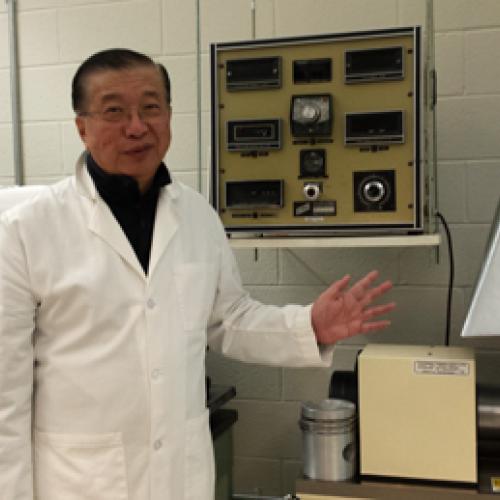Energy Science & Technology
Principal investigators with world-class expertise in chemistry, physics and engineering—and their multidisciplinary teams—develop innovative solutions to critical energy problems.
The diverse range of research includes thermal science and technology, nanotechnology, experimental and computational fluid mechanics, intelligent control systems and nuclear thermal hydraulics, with broad application to many energy challenges.
VSTC research addresses reduced carbon dioxide emissions, greater fuel economy in vehicles, increased capacity of rechargeable batteries, improved designs for wind turbine energy and assures the safety of nuclear reactors.
News
Next Generation Refrigeration Technology: Magnetic Refrigeration with Nanoparticles
In the advancement of alternative energy sources, and the critical importance of the global warming, magnetic refrigeration is a promising energy efficient and environmentally friendly technology to replace conventional vapor-compression techniques. Our research aims to design, develop, and implement the first scalable commercially viable compressor-free magnetic refrigerator system.
Professor Hsu Awarded $1 Million Grant to Increase Fuel Economy of Vehicles
Stephen Hsu, a professor in the GW School of Engineering’s Department of Mechanical and Aerospace Engineering, is developing an innovative friction reduction technology with a recently awarded $1 million, three-year grant from the U.S. Department of Energy to increase the fuel economy of vehicles. His new technology will potentially save the United States 140 million barrels of oil per year and help the automobile industry meet new fuel economy regulations. Prof. Hsu is leading a project team consisting of a car manufacturer, an oil company and several additive companies.
Remembering Fukushima: Unique GW Model Improves Understanding of Nuclear Reactor Behavior during Earthquakes
GW's research team is leading the way to new discoveries about the behavior of nuclear reactor cores during earthquakes.




